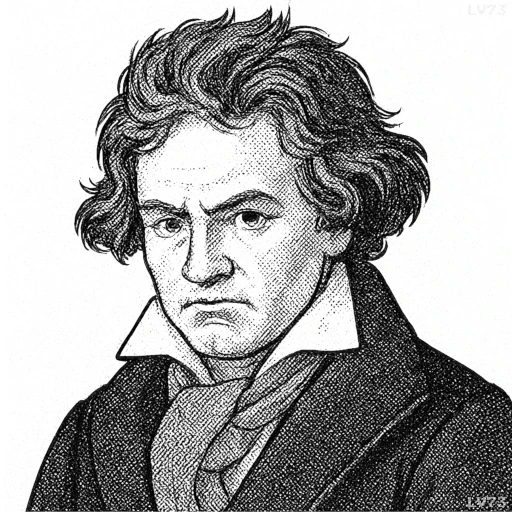“Beethoven can write music, thank God, but he can do nothing else on earth.”

- December 16, 1770 – March 26, 1827
- Born in Germany (Holy Roman Empire)
- Composer, pianist
table of contents
Quote
“Beethoven can write music, thank God, but he can do nothing else on earth.”
Explanation
In this quote, Beethoven humorously yet humbly acknowledges his singular talent for composing music, suggesting that while he is gifted in one area, he is otherwise incapable in other aspects of life. This statement reflects his self-awareness and perhaps a bit of frustration with the limitations he felt in his personal life, especially as he faced increasing challenges with his health and social isolation. Beethoven’s life was entirely devoted to music, and this quote emphasizes how deeply his identity was intertwined with his artistic abilities. In this sense, music was not just his profession—it was his reason for living, and he had little else to rely on.
This sentiment touches on the often singular nature of genius, where a person’s exceptional abilities in one field might come at the expense of other life skills or personal achievements. In the modern world, many creative individuals may resonate with this feeling—being highly skilled or accomplished in one area can sometimes create a sense of imbalance, especially when other areas of life seem less developed. Beethoven’s words might also reflect the intense focus required to achieve mastery in an art form, where the artist often sacrifices other aspects of life to nurture their craft.
Despite the apparent self-deprecation, this quote can also highlight Beethoven’s devotion to his art. The fact that he could do “nothing else” speaks to his commitment and the depth of his dedication. Even as he faced immense personal struggles, including his deafness, Beethoven continued to pour his soul into his music. In this sense, while he may have felt inadequate in other areas, his artistic legacy serves as a reminder that sometimes the pursuit of excellence in one area can have a lasting impact on the world. Today, this quote serves as both a reflection on the nature of genius and a reminder of the sacrifices often made in the name of artistic dedication.
Would you like to share your impressions or related stories about this quote in the comments section?
